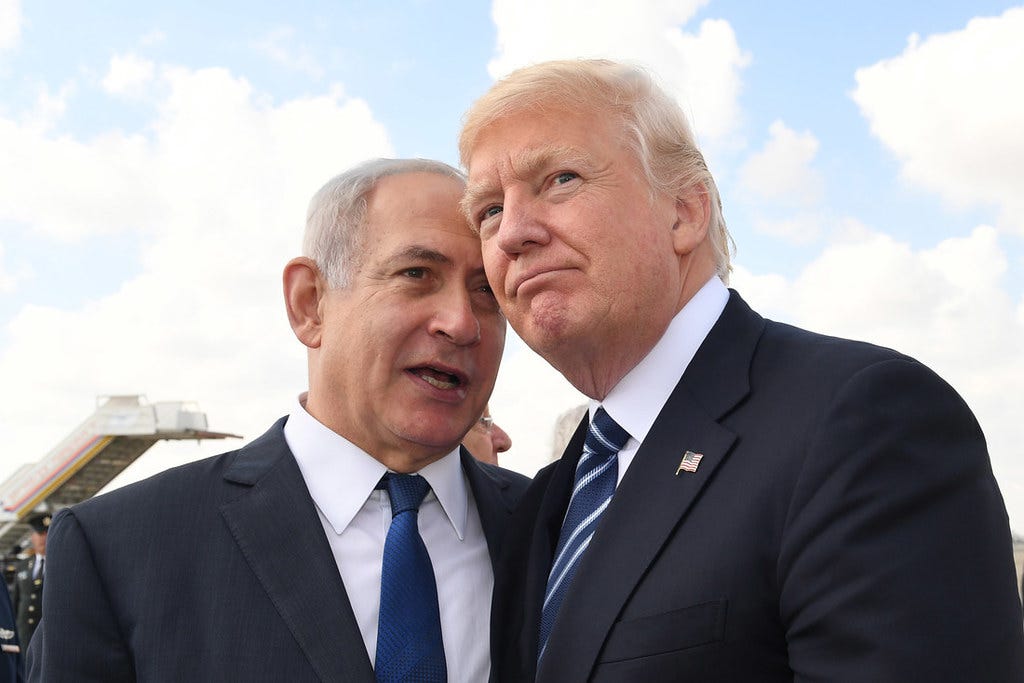How Netanyahu Prolonged Israel's War in Gaza to Save His Political Career
As ceasefire opportunities arose, the Israeli Prime Minister chose coalition survival over peace, prolonging a war that has devastated Gaza and claimed thousands of Palestinian and Israeli lives.
Cease-fire Sabotaged for Coalition Loyalty

By April 2024, with Israel deep into its war in Gaza, Prime Minister Benjamin Netanyahu was positioned to endorse a truce. A deal was on the table that could have freed dozens of hostages and halted the bombing campaign, offering a pathway toward normalization with Saudi Arabia. But when faced with a political ultimatum from his far-right coalition partners, Netanyahu shelved the agreement — and the war raged on, according to a report by The New York Times.
In a closed-door meeting at Israel’s Ministry of Defense, Netanyahu reviewed a document outlining a plan to pause fighting for six weeks. The proposal would have jump-started hostage negotiations and brought relief to Palestinians in Gaza, where more than two million residents were trapped under daily bombardment. But Bezalel Smotrich, the finance minister, threatened to dissolve the government if Netanyahu moved forward.
“You no longer have a government,” Smotrich warned, prompting Netanyahu to retreat. Instead of presenting the plan, he leaned toward his security team and whispered: “Don’t present the plan.”
The result: no cease-fire, no hostages freed, no diplomatic breakthrough. Instead, Israel continued its assault, and civilians on both sides paid the price.
Coalition Politics Over Civilian Lives
Throughout the war, Netanyahu faced pressure from President Joseph R. Biden Jr. to deliver humanitarian aid, prepare for Gaza’s future governance, and prioritize hostage rescue efforts. Each time, Netanyahu demurred. His coalition’s survival depended on hard-right ministers like Smotrich and Itamar Ben-Gvir, who opposed any concessions to Palestinians or international partners.
When a temporary truce finally occurred in January 2025 — backed by then-President Donald Trump — it was short-lived. Two months later, Netanyahu reignited hostilities to secure Ben-Gvir’s return to the coalition and ensure budget passage. The war continued, and so did the deaths.
Strategic Warnings Ignored, War Extended
As early as July 2023, Israeli intelligence warned that domestic unrest over Netanyahu’s judicial overhaul weakened Israel’s deterrence posture. Both Shin Bet director Ronen Bar and army chief Herzi Halevi delivered multiple alerts. Netanyahu dismissed them.
When Hamas launched its attack on Oct. 7, 2023, security forces were unprepared. Netanyahu immediately distanced himself from the failure. His administration ordered altered records, moved meetings off the books, and attempted to revise phone logs to obscure his inaction.
Meanwhile, he resisted calls for postwar planning, repeatedly escalating military objectives in Gaza, Lebanon, and Iran. Critics said he changed strategic goals to avoid truce deadlines and keep his coalition intact.
Public Manipulation and Media Strategy
Netanyahu’s team engaged in covert efforts to discredit protesters and shift blame. In one instance, his aides leaked an intercepted Hamas memo to Bild, a German tabloid, to suggest that hostage families demanding a truce were unwittingly aiding Hamas’s psychological campaign. Netanyahu later cited the article in a cabinet meeting, saying: “Hamas… wants to tear us apart from within.”
His government also tried to fire independent legal officials, including Shin Bet’s Bar and Attorney General Gali Baharav-Miara, both of whom were involved in cases related to Netanyahu’s corruption trial or wartime conduct.
Death Toll Mounts Amid Missed Peace Windows
By mid-2025, more than 55,000 Palestinians, including nearly 10,000 children, had been killed. Around two million were displaced. At least eight Israeli hostages died during periods when truce deals were within reach but not pursued. Netanyahu, according to interviews with 110 officials across multiple countries, repeatedly delayed negotiations to prevent his coalition from collapsing.
International institutions responded with scrutiny. The International Criminal Court issued an arrest warrant for Netanyahu. The International Court of Justice is reviewing whether Israel’s actions amount to genocide.
Victory at What Cost?
Despite regional military gains — including damaging Iran’s defense system and defeating Hezbollah’s leadership — Netanyahu’s strategy left scars. Critics say these were not victories planned in advance, but political lifelines seized opportunistically.
When asked why he rejected a hostage deal backed by over half the Israeli public, Netanyahu reportedly replied, “Not 50 percent of my voters.”



